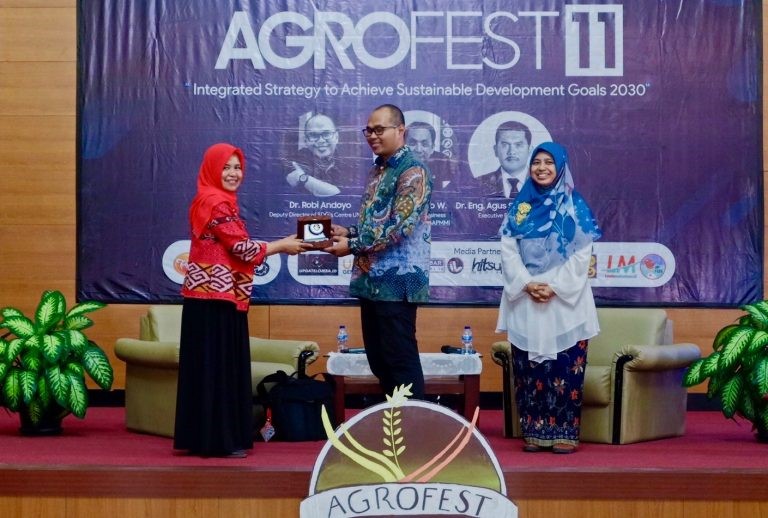The Sustainable Development Goals (SDGs) are a global agenda as a result of the agreement by 193 UN member countries as concrete actions to end poverty, reduce inequality, and protect the environment. The agenda is a policy guideline for countries in the world for sustainable development 2030 consisting of 17 goals (SDGs) to balance the three dimensions of sustainable development (environmental, social and economic). The implementation of SDGs achievement in Indonesia is regulated in Presidential Decree No.59 / 2017 and becomes the national development agenda listed in the 2015-2019 RPJMN.

“It should not only be the government that plays a role in achieving SDGs, but all parties must participate in sustainable development, including academics, academics in every university”. This was conveyed by Robi Andoyo, Ph.D, Deputy Director of SDG center UNPAD who is also a lecturer at the Faculty of Agricultural Industrial Technology Unpad, at the AGROFEST11 national seminar (semnas), Saturday morning, 23 November 2019 at Achmad Sanusi Building, UPI, Bandung.

AGROFEST is an annual program of the Agro Industry Student Association (HIMAGRIN) which in 2019 takes the theme “Integrated Strategy to Achieve Sustainable Development Goals”. According to the source (Robi Andoyo), SDGs should be assessed as a holistically integrated network, not a complex and independent one. Efforts to achieve a goal will have an impact on the achievement of other goals, for example: goal 12 (responsible consumption and production) and goal 10 (reduction of inequality) are “leveraging goals”, because they have the highest level of relevance.

In relation to food technology, food processing is sustainable if it is carried out without damaging the environment. One of the efforts that have been made by resource persons and their colleagues as an SDGs Solution Related to Technological Advances is the development of whey protein-based emergency food by utilizing whey from cheese processing waste.
(MNH)

